Does Diversity in Fantasy Publishing Reflect God’s Kingdom or Identity Politics?
Christian film and fiction has often been charged with being “preachy,” “heavy-handed,” and “message-driven.” As a result, many Christian creatives have pursued a more nuanced approach, seeking to embed a biblical worldview or spiritual themes organically into their stories, rather than through explicit didactic moralizing.
Nevertheless, a move is afoot in the arts that renders such nuance rather pointless. In fact, the open embrace of agenda-driven fiction and politically correct themes is now fairly common in mainstream publishing.
The challenges of award-winners
An article appeared recently in Speculative Faith entitled Growing Diversity in Fantasy Genres Gives Us Hints of Eternity. The author’s (Daniel Whyte IV) intent was to celebrate diversity in speculative fiction publishing and hail its biblical import. Yet he (perhaps inadvertently) also highlights the sticky ideological and political agenda behind this push and why Christian fans of the genre should be leery of it. Whyte writes,
… like much of the world, science fiction and fantasy are growing up, growing wiser, and embracing the stories of traditionally marginalized people groups. Some might say science fiction and fantasy (SFF) are ahead of the curve.
The ever-widening tent of modern science fiction and fantasy was evidenced at this year’s Hugo Awards, where female writers and artists swept the prize in all major categories.
N. K. Jemisin, the African-American author of the Broken Earth series, had already made history in 2016 by becoming the first black writer to win the Hugo Award for Best Novel. This year she made history again by becoming the first person ever to take the top prize three years in a row.
Many of the other winners were also reflective of the growing diversity in SFF publishing …
In recent years, the Hugo awards have become an octagon of ideological in-fighting. While some fans view the industry’s push towards diversity as stoking discrimination, creating an undeserving bias toward books containing (or written by) people of color, females, and the gender-fluid, others have seen this disparity as necessary recompense to balance the scales of a previously white straight male dominated industry.
At one time, the science fiction and fantasy (SFF) genre was seen as cutting-edge regarding technology, civilizations, and theoretical sciences. Now, however, that prescient creativity has translated into acknowledging “traditionally marginalized people groups” and affirming a host of exotic sexual proclivities.
For example, one commenter on the original post at Spec-Faith noted that Jemisin:
… is a fantastic writer, but I stopped reading her book the Fifth Season because it felt like it was shoving LGBTQ, sexual immorality, and racial agendas down my throat.
This is not a surprise, and that observation is not uncommon. Jemisin is an outspoken progressive whose stories contain queer characters (even queer gods), are critical of Western culture, and employ the language of critical race and intersectional theory. However, the author’s “racial agenda” did not prevent her from being “the first person ever to [win a Hugo] three years in a row.” The painfully obvious question is whether the awards were merited or reparative.
Biblical diversity
 So is the “diversity agenda” really about “growing up,” or is there an ideological component that makes the movement less than virtuous? Even more importantly for Christians, are the Hugo awards, the sweeping wins of female creatives, the emphasis on multicultural inclusion, and N. K. Jemisin’s trifecta really a good example of biblical diversity?
So is the “diversity agenda” really about “growing up,” or is there an ideological component that makes the movement less than virtuous? Even more importantly for Christians, are the Hugo awards, the sweeping wins of female creatives, the emphasis on multicultural inclusion, and N. K. Jemisin’s trifecta really a good example of biblical diversity?
Apparently, Whyte thinks so. He continues:
… the embrace of diversity in speculative genres ought to remind us that, one day, people of every nation, ethnicity, and language will live, work, and love together in the New Heaven and New Earth.
… The arc of the universe bends toward diversity. It bends toward a re-imagined Eden where the things that have divided for so long—the differences of race, gender, ethnicity, culture, and economic standing—become the elements God uses to paint a new mosaic. In this mosaic, the beauty comes not just from unity despite our differences, but unity made more glorious because it embraces our differences.
Indeed, ethnic and cultural diversity is a reflection of God’s creativity. Redeemed humanity will not be segmented according to melanin levels, language, or income. But in the same way that biblical “love” is qualitatively different than romantic, emotive, or carnal love, biblical “diversity” is different than its worldly equivalent.
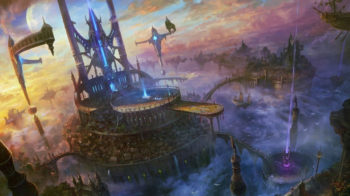 Whereas the Gospel is aimed at all people groups, the Church is unified around a single Person and theme. The Apostle Paul wrote:
Whereas the Gospel is aimed at all people groups, the Church is unified around a single Person and theme. The Apostle Paul wrote:
There is neither Jew nor Greek, there is neither slave nor free, there is no male and female, for you are all one in Christ Jesus.1
Rather than highlighting our differences, Scripture emphasizes our similarities. God has “made from one blood every nation of men” (Acts 17:26 NKJV). Humanity is unified in its sin, fallenness, and hunger for the eternal. The redeemed are unified by their Savior, his Spirit, the truth, and a mission. Again, Paul notes:
For we were all baptized by one Spirit so as to form one body – whether Jews or Gentiles, slave or free – and we were all given the one Spirit to drink.2
The Body of Christ is indeed a “mosaic.” This tapestry, however, is not the result of quota conversions. Ethnic diversity is the result of preaching the Gospel and making disciples, not its aim. Of course, as individuals we are to check ourselves for sin, seek out those on the margins, not flaunt our privilege or be bound by our cultural boxes.
Is forced diversity really biblical diversity?
Nevertheless, forced diversity is not biblical diversity. In fact, it leads to endless bean-counting, ledger-balancing, and otherwise sleazy scale-tipping.
Which is why SFF’s diversity agenda has become so tedious.
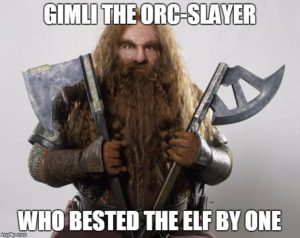 For example, J.R.R. Tolkien, author of the Lord of the Rings trilogy, was recently accused of being racist in his depiction of orcs:
For example, J.R.R. Tolkien, author of the Lord of the Rings trilogy, was recently accused of being racist in his depiction of orcs:
… a US sci-fi writer has blasted JRR Tolkien for his portrayal of orcs in the Lord of the Rings. He claimed they were simply misunderstood, comparing them to today’s migrants and refugees…
“It’s hard to miss the repeated notion in Tolkien that some races are just worse than others, or that some peoples are just worse than others,” [Science fiction and fantasy author Andy Duncan] told Geek’s Guide to the Galaxy, a podcast run by Wired magazine.
Make no mistake, when diversity becomes the Rosetta Stone of literary theory, such conclusions are inevitable. Through the lens of identity politics, orcs become marginalized, misunderstood, Middle-Earthers while the King of Rohan and his ilk (all old white men) are seen as props for privileged, hetero-normative, racists. Unfortunately, such over-correction is fraught with danger. I mean, is the playing field really leveled by making white men bad guys and their imperialistic over-reach the norm? Is real diversity achieved through a false balance?
Sadly, such overreach is now the norm in SFF fandom.
Take Mythcreants, a site devoted to spec-fic fans and writers, which has compiled checklists to help authors recognize numerous unconscious isms. Articles like Five Signs Your Story is Racist, Five Signs Your Story is Transphobic, Six Signs Your Story is Queerphobic, and Five Signs Your Story is Sexist, assume that latent social sins inflict the white majority and that the mission of the SFF creative is to purge the wrongthink from our ranks and right those societal wrongs through our fiction. Sensitivity readers, as they are called, are now regularly employed by publishers to ensure that people of color and the marginalized are “correctly” portrayed by authors of other ethnicities, gender, or ability. Another off-shoot of the diversity trend are challenges like Stop Reading White, Straight, Cis Male Authors for One Year. This typically includes reading only females, the multi-gendered, and people of color.
Apparently, being woke demands a lot of penance.
Still, the question remains: Is forced diversity really biblical diversity? In his article The Danger of Manufactured Pre-Determined Diversity, David Fitch rightly notes the downside to churches that force diversity:
There is a danger of a manufactured pre-determined flattened diversity that is often shaped by the bland vision of American democracy.
…I have noticed (at times) a manufactured diversity in large churches in majority white suburban wealthy communities. Here people of different ethnicities and social backgrounds are hired to be visible and lead from up front. Is this a good thing? Sometimes this can work for some good. Sometimes, I’m afraid it is manufactured and is not the diversity we seek. Kingdom diversity is a culture of renewal worked out on the ground in real relationships. [Which is why] I tend to discourage such attempts at manufacturing diversity.
I’m afraid that the type of diversity advocated by many in in the SFF community is “manufactured diversity.” While quota hires and awards may result in visibility for some perceived marginalized peoples, it inevitably leads to further discrimination and rigs the system against merit-based achievements.
Whyte is correct to note that diversity is a hallmark of God’s Kingdom. However, God does not build that diversity through quota conversions. Ethnic diversity is the result of preaching the Gospel and making disciples, not its aim. The main criteria for inclusion into God’s family is not demographic, but spiritual—an open, willing heart. The Christian SFF fan should be less concerned with demographic equity and perpetuating message-driven propaganda and more concerned with genuine inclusion. Nevertheless, the push for diversity in SFF ranks appears more like identity politics than it does anything resembling the Kingdom.


































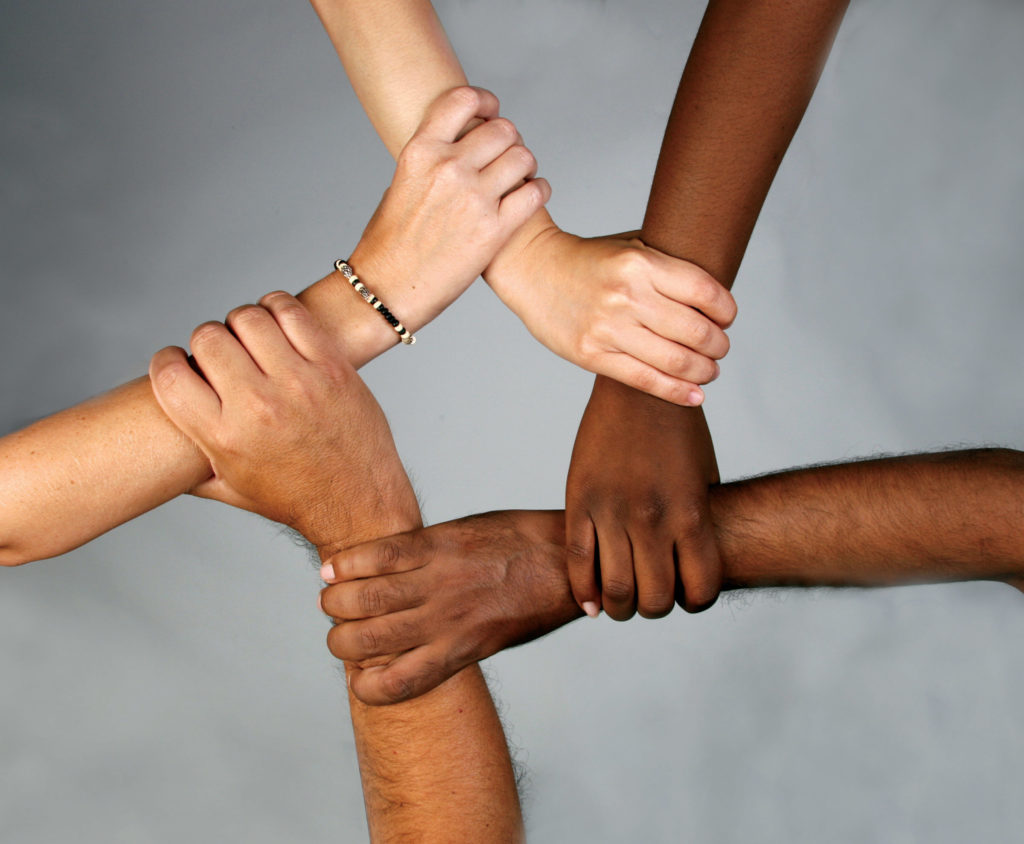


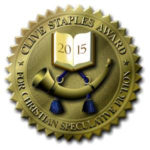
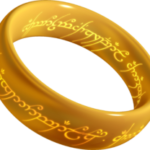




The problem with forced diversity is that the art of the story is no longer about the art of the story. The same is true for Hollywood. I remember in my college painting class, my professor made a point to make sure you’re true to yourself or else the art will reflect a sense of being forced to fit a mold, and it’s not going to work. The artist needs to be free to create art from the soul or else diversity becomes non-diversity, and everything is on a factory setting, and your creativity is stifled. Even non-ethnic things are being checked by folks at the publishing houses. I remember talking to a children’s book illustrator (in the secular market) one time who had to do his illustrations over because not every child at the dinner table had the exact same number of peas on their plate. And that was 20 years ago.
The whole peas on the plate thing is craziness. Oh, my. Socialism at it’s best. Too bad we have a world that doesn’t fit their vision of fairness. Wow, Satan has surely been busy convincing people that an equal number of peas on children’s plates is important. Only in a picture would it ever be that way.
As a fantasy writer, I built my world with a variety of ethnicities/cultures for two reasons: 1. It’s far more interesting, in my opinion, than pulling from the same Medieval European tropes, and 2. If I can create characters that more of my young readers can relate to, that’s a good thing. But I agree with Jeff Miller above … the story can become stifled and unoriginal when it focuses on the diversity instead of on the story you’re trying to tell.
Re: forced diversity? See, this is the reason FOR the push to read, recognize, and value minority writers. Because they ARE telling a different story from their heart.
Don’t want to “force diversity”? Then elevate and READ minority writers. Imbibe their stories naturally.
Live in places that have “real” diversity, and experience, not the white megachurch “staged” diversity, but actually attend a church where you’re the minority. Choose situations where minorities aren’t just your peers but in authority over you. Listen to minority voices, and don’t immediately dismiss what they’re saying. Listen to understand, not to counter their arguments, and tell them that their lived experience is invalid because you haven’t lived it.
You can’t have it both ways. If you like the idea of diversity, but you don’t want forced diversity, it’s not going to happen. If you’re the majority, that often means stepping back to elevate another. Which is absolutely Biblical.
Or, is it that diversity only sounds like a good idea, as long as you don’t have to be uncomfortable about it?
Right. Just like you can’t have freedom unless it’s forced, and you can’t have happiness without it being forced.
Come on, Jo. That’s ridiculous. I DO read minority writers. And no one had to force me to do it.
Forced diversity is tyranny, and no one wants to lose their personal freedom.
Unless, of course, it benefits you more than others.
But this (what you said) is beautiful and important, “Listen to understand, not to counter their arguments, and tell them that their lived experience is invalid because you haven’t lived it.”
I didn’t mean “forced” as in, outside authority saying “do this thing.” I meant it in terms of a story feeling “forced.” Of doing something that feels unnatural and uncomfortable.
The question of, do you hope diversity will happen naturally by “just focussing on good stories,” or do you make a specific intent to push into that area?
Ohhhhh ok. That makes way more sense now. Thank you for the clarification. I’m sorry I miss-interpreted your meaning.
One way I approach it is to just read/write whatever interests me, and the diversity part usually follows from there. When I was little, for instance, I read the Lion Boy trilogy by Zizou Corder, and as I do with a lot of my faves, I read it over and over again. The reason I read it was because the description was interesting. It had nothing to do with the authors or diversity(I don’t even think I knew the race of the chars before reading). Later on, though, I read the author bio and thought it was pretty cool, because Zizou Corder is actually a mother daughter team, and one of them is black(based on the photo in their bio). The race part wasn’t really relevant to me at the time, but now that I’m older, I think the book did a good job with that(from what I recall). The main char is the son of two scientists. He’s an interracial child. His parents are good, kind people that love and respect each other. Both of them are active in the story and are fun, quirky characters. The story makes commentary on what it’s like to be an interracial child, but to my young mind at least, the comments felt natural based on the situation, rather than forced. And the book wasn’t one sided about it, at least not enough for me to care.
Sometimes it makes sense to seek out minority voices for the sake of learning and such, but in general, people’s work should stand out on its own. I stumbled onto the indie novel/comic community by accident and have loved it ever since, even before I knew to call it ‘indie’. I didn’t really look much into the authors themselves, but over time I found out more about them. Quite a few are of minority groups, and that makes me happy, but that wasn’t why I chose to read their work.
WHO are YOU to decide that white people have to make *more* *concessions *??!? Are YOU Mike Duran? No, you most certainly are NOT.
Uh-oh, Mike. You’ve TRIGGERED NOTLEIA! I would hesitate opening any postal mail within the next three weeks, if I were you.
ONLY MIKE DURAN CAN JUDGE ME
This is more along the lines of what I was pointing out in my article. I never suggested that staged or forced diversity was good. Rather, I wanted to point out that an embrace of differences, rather than a rejection of that which is “other” simply for its otherness (not talking about sin here), is in line with the vision of God’s Kingdom.
Recently I had a novella rejected by a major sci-fi publishing house that said they would have published it, they liked the story, but were not going to because all the relationships in it were “hetero-normative.” No gay characters or romances, in other words. This is what writers are going to run up against more and more.
I’m sorry you’ve went through that. That is what I find reprehensible. That’s why I find this movement unbiblical. We can’t include others by excluding others. God doesn’t keep the circle the same, He widens it. He brings people in, He doesn’t kick people out. We can’t fight favoritism by using favoritism. This is satanic.
This is what I hate. Apparently, many “gatekeepers” are so woke they’ve awakened in the land of stupidity.
The problem is I don’t think the majority of people (even “progressive” people) would agree with this. However, a lot of people feel pressure to go along with the “elite influencers” who somehow have bequeathed to themselves the right to shape everyone else’s opinion.
This article touches on that problem: https://www.theatlantic.com/ideas/archive/2018/10/taylor-swift-kanye-west-and-competitive-wokeness/572716/
Another note: In my sci-fi universe, which consists of many races of beings, the Terran Alliance (Earth and its colony planets) is not dominated by European culture but by Indian (as in, from India) culture. People of European descent form a sizable minority, but a minority none the less (as do other races of humans). But Indians are the largest racial group and the hegemony of the Alliance is Hindu-Indian rather than European, which makes for a fun and interesting way to write about the future. I don’t white-bash, Euro-bash, or disregard Asian or African culture (China is still an independent nation-state on Earth and has colony planets, etc.). But it’s fun to imagine a world where the civilization of India, an ancient and, at times in history, powerful civilization in Asia, has once more risen to a place of cultural importance.
I wonder how many people who complain about Jemisin’s Hugo wins have actually read the books in question. There is no question in my mind that The Fifth Season deserved to win the award for best novel. Yes, it is grounded in a set of worldviews that many Christians will find problematic to some degree, and includes some fairly explicit sex scenes. It’s also some of the most brilliant worldbuilding of the past decade, and is far more honest than most secondary world fantasy about how a society that fears but still needs magic might deal with those who manifest the ability.
I don’t like forced diversity either. But maybe we should be careful about assuming that, just because a novel is being lauded as appropriately woke by the secular, left-leaning speculative fiction community, it must therefore not be able to stand on its own merits, and is only winning awards because of its political agenda. Especially if we want everyone to stop assuming that all Christian fiction is terrible, and that we’re overlooking its flaws because at least the authors are praising the Lord.
Agreed. And I was the commenter quoted who complained about Jemisin’s agendas. I haven’t read every other book that was up for the award, so I have no way of saying whether she deserved it. It certainly was a fantastically well written book (with a bunch of political and immoral agendas jammed down my throat).
Differences in worldview make a huge difference in what a person wants to read. I’m not going to read a book with lots of sexual scenes. They haven’t invented a filter for books yet like VidAngel for TV and movies. Frankly, I don’t want to read a book that is being “lauded as appropriately woke by the secular, left-leaning speculative fiction community.” Their community is not my community. I feel the pain of those who weren’t Christian who felt that Christianity was being shoved down their throats when they watched Christian movies. I agree with Brennan in that feeling. I like watching a show where I can get away from the struggles in our culture so I’m surely not going to read a book and immerse myself in the things I disagree with again. This may be a place where our two communities will not come together. We can’t reconcile the two worldviews. I think we need to stop trying.
I’ve always loved SF because of all the different ethnic groups and how they all get along. But, just as God thinks, there are differences between people or cultures, some are good, some are bad, some with points in between. The SF books accepted that fact too. If the “left-leaning speculative fiction community” can’t accept that fact and they just want to push their propaganda of all cultures being equal, then I won’t be reading their work. Why would I be interested in that when my worldview is completely different? Why would my neighbors from the “left-leaning …” want to read anything with my worldview when they aren’t interested in it? Why are we trying to make everyone the same? Hmmm. Seems less and less like diversity and more and more like exclusion to force everyone to believe one way, a different worldview than had been the prevailing one. The more people read or watch something it becomes normalized. Isn’t that what this push to include the worldview of the left was started for, to change what people believe?
Didn’t I used to hear people on the left saying, “Don’t force your morality on me”? Isn’t that what the people on the left are now doing to the people on the right? Well, surprise, surprise, we don’t like it either. I wish the publishers, Hollywood, the media, colleges, etc, would stop trying to force their morality on me. When we have different ideas of morality and decency, totally different worldviews, I don’t see how we can read the same books.
Kristin, I completely agree with you on this. As Christian writers, we should be able to recognize quality work even if we don’t agree with any agenda that might be present. I doubt many Christians agree with the message of the poem “Invictus.” But, I think we can all agree that it is well-written and quite powerful.
It matters not how strait the gate,
How charged with punishments the scroll,
I am the master of my fate,
I am the captain of my soul.
Not entirely true, but still…
Welp, everybody can go home now, because MIKE DURAN has decided.
YAAAEY WE DID IT, RACISM IS SOLVED FOREVER!!!!!1!
Tangentially related article: https://www.thestranger.com/seattle/deeply-embarrassed-white-people-talk-awkwardly-about-race/Content?oid=9747101
Finally took the time to read up on the actual framework behind the Nebula and Hugo Awards; gotta remind myself what exactly the barometer is supposed to be measuring. I’ve never been a fan of the word “best” since it logically implies personal opinion of how something measures up against a standard, and a sense of “if what you want is ___, then ___ is probably the best.” Since each award is nominated and voted on by members of the respective societies, you must assume every voting member has read enough to make a determination across a wide enough range of offerings to begin with. Then “Best” becomes (in my reading) undefined. Not “most innovative use of narrative devices” or “most unique and original plot” or “most fully-formed character arcs” or “at the cutting-edge of popular culture and societal norms” or even “least derivative of previous work”, “most impact on readers”, “most impacting on this reader”, “most true to the society’s core values” or anything else. Like all “Best” awards, I’m left with “Some people liked this story a lot.” Mweh…. many of them I didn’t, and that’s OK.
My books are written for the Christian Fantasy reader, with the Main Characters being human and elves. Three of my secondary characters are a Native American, trapped like my MC on the Elven side of the portal, a green-skinned leprechaun, and a Drow (gray-skinned) she-elf with lavender eyes. My MC, Connor, is married to an elf (Iolena, the female MC), as are his human daughter and both of her human daughters. Connor and Iolena have one elf daughter by her first marriage, a human daughter by his first marriage, (Both of them are widowed. Connor’s first wife was executed in our world for refusing to renounce her Christian faith, in keeping with the prophesied coming persecution.) an adopted Elven daughter and a half-elf daughter, Fiona, born of their marriage. We deal with “diversity issues” as they arise from a Biblical viewpoint, but they do not drive the stories. I am not called to be politically or socially correct in my writing. Issues I do address are things like prejudices (Elves are discriminated against in one world for their pointed ears, and in another for the use of magic, which is forbidden there.), hatred and evil, same-sex attraction, forgiveness and faith. The two major villains are actively involved in inter-world sex slavery, crossing nation and world borders to do so. Evil is real, exists, and is in a continual battle against good and the Truth. Good is a bit more ambiguous, but the Truth (God’s plan for salvation) is always constant. Connor, Iolena, and Menta Kai (the adopted daughter) are tasked with taking the Truth to the Nine Worlds.
I get just as tired of being told that the “best” books are ones that have the requisite focus on certain races/orientations/whatever, or a certain worldview that does/does not contain X,Y, or Z… as I am of being told that the “best” Christian fiction books must have a salvation message, or have no fantasty/SF, or must not contain X,Y or Z.
I’m not sure how other writers handle it, but for myself, I have to shut out all that noise and just write the story to the best of my ability. Sometimes that may mean “diversity”, sometimes it might not.
This video carries a few of my feelings on the matter:
This isn’t something I thought a lot about growing up because all I wanted to do was tell stories that are fun, cool, and had something to say about life and human nature. No one ever doubted me because of my gender or race, or if they did, they never showed it or did anything to hinder me. Most people seemed to be more intent on encouraging a young writer. But as an adult, seeing some of the pushy diversity politics feels kind of cruddy, like the main comments toward my stories are going to be. ‘Hey everyone, look, a woman writer! And guess what, she writes ace/aro chars sometimes!’
I don’t mind people liking those aspects, but is that the primary thing that matters? I really hope that’s not the best/only thing I have going for my stories. What about the writing style I try so hard to develop? What about the world building and creature designs I’ve labored over since I was a kid? What about the other themes in the story that are dear to me and take center stage, such as handling the difficulty of human relationships(both platonic and romantic)?
People that praise diversity genuinely do like the stories by women and minorities, but it often doesn’t seem that way when the diversity aspects are where the focus is. Yes, discuss those things, and be happy about them if one likes. It’s a fascinating topic that I don’t mind participating in myself. But, as a writer, what makes me happiest is to see people getting excited about complexity in a story, like when they notice carefully placed details in the way a char’s situation is portrayed. On the second chapter of the Naruto fanfic I’m writing, for instance, one reviewer said they liked the insight into Itachi’s mind I was giving, and how I depicted him as a kid with a lot on his shoulders instead of just a dangerous prodigy. That makes me happy because I worked so hard to portray that aspect well, and knowing things like that helps me grow as a writer, because I know what I’m doing right and wrong.
But if people were praising or awarding my work because I’m a woman, I’d feel a bit like someone’s charity case, or like the actual work I put into the story meant nothing. Some of this just depends on how we talk about the issue, though. If someone did a blog post that said ‘My Top 10 Favorite Books of All Time’ and one of my books was on there, and it was clear that their picks were based solely in enjoyment of the story, that would mean more than someone saying ‘Best Women Authors of 2018’. Best Women Authors of 2018 wouldn’t be a bad post per se, and I wouldn’t mind being on it(positive promotion is positive promotion). But I’m more interested in knowing how my work compares to everyone overall, not just to other women/minorities. And I’d prefer that people choose to read my stories because they sound interesting, not just because they need to ‘support poor women’ like me.
Here’s another thing as well. Please pay attention to the points he makes later on in the video. One thing he points out is that the anime community is, in many ways, very diverse already, but that being pushy and preachy about diversity can kinda mess it up.
There are a few minor points I would criticize him on(I know tons of Latinos that are light complected, and that doesn’t make them any less Latino or make their voices matter any less.)
Very thoughtful comment, Autumn. I appreciate reading your perspective.
Amen. I think this is what Martin Luther King was talking about, being known for our character and not our race. Translates to being known for writing a good story, not just for our sex. Really, I just want a good story. I don’t care who wrote it or what color they are. We are all human. (whispering: “You know what? I watched a show the other day with all black characters, and they acted just like my friends and family do, and we’re all white. Isn’t that amazing? Who knew.” Snark, of course. With all the current hoopla, you’d think we were different.) Maybe everyone needs a pseudonym so that no one knows, but then book tours would be nixed.
Great videos. Thanks for including them. Yes, I want diversity to be diverse because we are all human, not because of agenda and brainwashing. The agenda is to change the culture not to include others. I’m still watching the last video, maybe by diverse this group meant hair color. 🙂 Even though I’m not into Anime, I’m very glad to hear what he had to say about it and the diversity that has always been there.
I probably don’t actually care much about literary awards in and of themselves, even though they’re fun and can be a way for authors to gain more visibility. One thing I will say in all this is that understanding the context of an award nomination, character, or story matters a lot, regardless of what side one is on in this issue. Author intent does matter a lot, so we should be careful before jumping to conclusions.
One of the races in my stories, for instance, which ends up forming one of the assassin guilds that is pivotal to the plot, is very pale. Like, white skin, white hair, and unusual eye colors(heterochromatic eyes are common for them). They manifested in my stories after I started coming up with the lineage and backstory for my char Azrael. Most people would see his guild as evil and racist, because for a long time they didn’t really let outsiders intermarry into their bloodlines. After a while, they started allowing intermarriages and strive to obtain certain bloodlines from outside the guild because they figured out that genetic diversity is healthy for a population. But the guild is still not kind and still tends to treat those of ‘outsider’ bloodlines poorly(with some exceptions. And there are times when people of their guild’s bloodline get treated like outsiders.) Is this to push a ‘whites are bad and racist’ agenda? Absolutely not.
This story takes place in a world where earth doesn’t even exist. None of our actual races and cultures technically exist there, either, so pale or not, this guild is not made up of ‘white people’. There are some things from our world that are in this story, such as such as the creatures(yokai and banshees are two examples) But they originated out of completely different circumstances. And this guild grew out of an exploration of Azrael’s character, not an agenda. Saying that his guild is ‘definitely’ a representation of any race in real life would be doing both the story and readers a disservice. When interpreting the story, it would makes sense to take away points like ‘racism is stupid’ and ‘over time, cultures change'(Azrael’s people were not always prejudiced). And people should realize things like that based on the context: There are other guilds(with high populations of light skinned people) in the story that actively take in outsiders on purpose, when they can do so without compromising their guild’s security(one thing they do is adopt a lot of orphans).
Looking at the context of the variety of guild cultures, and the fact that Azrael’s people have had different cultural mindsets throughout the history of this story world, readers should be able to tell that the story wasn’t written to bash anyone’s race. Maybe people will initially interpret stories wrong, but they should be willing to think about it, listen to the author’s commentary on the story, and be willing to change their minds about it if they did misinterpret. I hope that people will do more to listen to stories and be willing to see the story itself, rather than only wanting to squeeze it into a narrow box that ONLY encompasses our current cultural trends.
Another example of context came recently as I was listening to the audiobook version of Stephen King’s On Writing, and he was making a point about dialogue and how powerful it can be. He mentioned how some of the fans reacted to his dialogue and characterization, and how he’d get letters accusing him of racism, sexism, homophobia, etc. There was also an example where he wrote a character that beat a dog, and he had letters accusing him of being an animal abuser. In responding to these letters, he of course had to specify that he never hurt any of his pets, that the story isn’t real, etc. But, another thing he pointed out is that the purpose of a scene like that is to show how dangerous a character is. The fact that people don’t realize stuff like that means they aren’t paying enough attention to the story’s context. Like, if a villain does something heinous, maybe that means the author is denouncing a behavior, rather than supporting it? Or, maybe, the author is simply describing a behavior, rather than giving or withholding support of that one thing?
I didn’t really think about diversity in my writing much until recently when a friend was talking about some of the difficulties that her fostered/adopted children of minority races have faced in the predominantly white culture they live in. She mentioned how media plays a role in how her kids see themselves and how other kids see them. That made me think about my writing and wonder if I should integrate more ethnic diversity into my stories.
I’ve seen diversity come naturally in many forms of art, but at the same time, some artists are obviously pushing an agenda in their work and the result is repelling. In fact, agenda-pushing tends to be repelling in any form. I’ve read books, watched movies, and seen other mediums using “forced diversity,” and the quality of the work always suffers for it.
I don’t think it’s a bad thing for authors to purposefully create a diverse cast – I will be doing so in my next book with my friend’s children in mind. I think we DO need to check our motivations. Are we focused on inclusion, like you said, or are we focused on converting a “not woke” audience to our way of thinking? An artist’s motivation shows through their work in thousands of small details, and the motivation can make diversity come across as either compelling or repelling.
It’s a difficult thing to do, keeping track of our true motives, when there are actual pressures from within the industry to “perpetuate message-driven propaganda,” but I wholeheartedly agree with Lisa that we need to “shut out all that noise” and, I would say, just write our conscience.
I agree. And I might have to read your books some day, since adoption is something I’ve considered the idea of way down the line 🙂
I agree. I see the need for kids and adults to see others who look like they do in the toys they can get, on TV, and in books. It is a good and necessary reason for inclusion. We live in a predominately white area and I purchased dolls of other ethnicities for my daughters to play with. They are now 19 and 30. My kids had a plethora of people who looked like them. They needed to know about diversity.
Bailey, I really appreciate your heart on this matter. There is a need for inclusion — in art, in church, in life — but inclusion for the right reasons. People can tell when diversity is being promoted for diversity’s sake and when it is being promoted for the sake of the Kingdom and for the sake of lifting up our neighbors and friends who happen to be different and who may have suffered for doing so.
I still remember, after watching The Lion, the Witch, and the Wardrobe movie 13 year ago, my dad wondering aloud why there weren’t any such films with black lead characters. Of course, we see some of that today with people saying children of color need to see and read about characters who look like them.
I don’t think the lack of such reading material (or movies) affected me negatively in any way. As much as I recall, most of the MCs I read about and loved were white. (Except for Redwall. Someone tell me what race is a mouse?)
Recently, a big deal was made about Miles Morales being the first Spider-Man of color. I’m glad he’s out there for kids today. And I like him myself; I really do. But, Tobey Maguire didn’t ruin me.
Mike, I know I’m a few days late, but thanks for writing this article. I think you’ve made some very good points. However, I’d like to point out that I actually agree with you: forced diversity is bad, agenda-driven diversity is bad. I never meant to imply with my article that I agree with such foolishness.
I have some experience with this, as it turns out. As a young black man with a degree in information technology, I’ve been told that, with the current awareness surrounding the lack of diversity in Silicon Valley workforces, companies would be all too happy to hire me. However, I don’t want to work for someone whose primary reason for hiring me was to fill their diversity quota or make themselves look good to the media or at their annual corporate meeting. “Hey, look at all the People of Color we hired!” I want to work for people who value my actual abilities, capabilities, and contributions.
As an aside, the reason why we have such a diversity of cultures, ethnicities, races, and languages is because God basically forced it on us humanity at the Tower of Babel. By dividing language, people were forced to gather only with those who were like them, and then those groups separated from everyone else and went their own way, which later led to conflict seemingly along lines of race, ethnicity, nationality, and language. ?